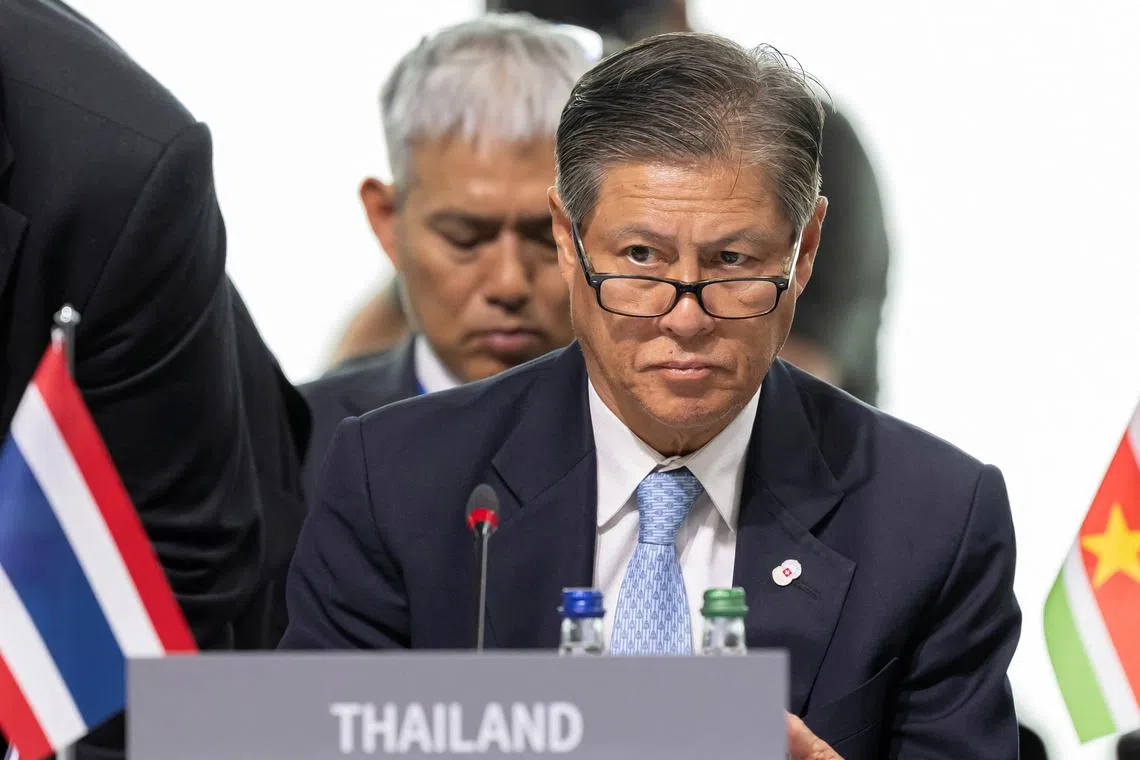Thailand’s deportation of Uighurs was to avert China ‘retaliation’: Minister
Sign up now: Get insights on Asia's fast-moving developments

Thailand's Vice-Minister of Foreign Affairs Russ Jalichandra said resettling the Uighurs would not shield Thailand from a potential fallout with China.
PHOTO: REUTERS
BANGKOK - Thailand’s deportation of 40 Uighurs to China
Thailand’s government has repeatedly defended the secretive deportation
Human rights groups accuse China of widespread abuses of Uighurs, a mainly Muslim ethnic minority numbering about 10 million in its north-western region of Xinjiang. Beijing denies any abuses.
Mr Russ Jalichandra, Thailand’s Vice-Minister for Foreign Affairs, in a statement on March 6, said some countries had offered to resettle the Uighurs, walking back previous comments by Thai officials that no such proposals had been made.
He did not name the countries.
The United States, Canada and Australia
But the offers from third countries were “unrealistic” as resettling the Uighurs would not shield Thailand from a potential fallout with China, Mr Russ said.
“Thailand could face retaliation from China that would impact the livelihoods of many Thais,” he said, adding that sending the group to China was the “best option”.
Mr Russ did not elaborate on the possible retaliation.
China’s foreign ministry and its embassy in Bangkok did not immediately respond to requests for comment on the vice-minister’s remarks about retaliation.
The Chinese foreign ministry told Reuters this week that the individuals Thailand sent back were Chinese nationals who were illegal migrants and the process was carried out in accordance with Chinese, Thai and international laws.
The 40 Uighurs deported last week were part of a group of 300 who fled China and were arrested in Thailand in 2014. Some were sent back to China and others to Turkey, with the rest remaining in Thai custody for over a decade. REUTERS


